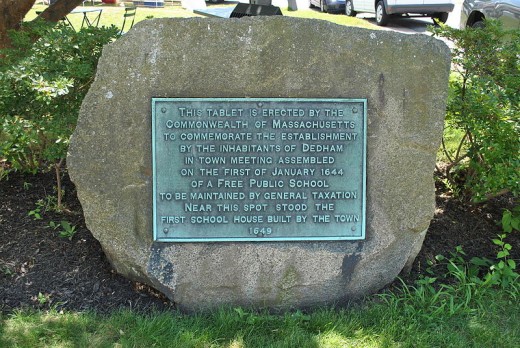Why does the American School System have Such a Long Vacation?
School Closed for the Summer

How Long is the Summer Vacation?
The school summer vacation can vary from 6 to 14 weeks depending on the country you live in. In the US, although it can vary from state to state, the majority of school districts run on a 180 school day year. The Education Committee in 2013 reported that 30 of the states work on a 180 day school year, with smaller breaks throughout the year and a long summer vacation. Consequently the summer vacation can be two months or more in length.
History of American Public School
In the years after the American Revolution Thomas Jefferson argued for an education system for all, but it was not until the 1840's that a few public schools began opening in communities that could afford them. Slowly a move towards free, compulsory education began, starting with Massachusetts passing the first compulsory school laws in 1852. By 1918 all American children were required to attend at least elementary school. To date there are approximately 15,000 school districts operating in the US.
Plaque marking the first public school

Modern School covered in snow

Why is it so Long?
Historically the reasons for the length of the summer vacation are based on money, agriculture, and facilities. It is often thought that students living in rural areas were needed to help around the farm during the Summer months, however as harvest times are usually Spring and Fall it may not be as accurate as it is thought. There are records of some city schools requiring students to attend school during the morning and work at earn money and develop industrial skills during the afternoons. It is also possible that students living in more rural surroundings would have found getting to school during the heavy winter snow harder than the winter causing absences during that season.
At the beginning of the development of public schools the length of the school year was determined by the finances of the district. A school with a long school year would be considered a more affluent and desirable school as it could afford to pay staff, building maintenance and equipment. This train of thought would suggest a shorter summer was more desirable, particularly for families who needed a place for their children while they worked. As the education system progressed the school calendar varied from district to district based on the needs and finances of the community.
Historically extremes of weather also factor in the length of the school year. During the hot summer months lack of money to invest in or run climate controlled building would make school buildings uncomfortable.
So why is the summer vacation so long in modern times?
With the development of climate controlled buildings, the introduction of child labor laws and the advancement of transportation is it really necessary for schools to closed down for the summer months? There does not seem to be a valid reason for the necessity of a long summer vacation. Advocates site the lengthy vacation as a tradition, part of American culture and a reason to work hard all year, looking forward to a long vacation. However does it really help or harm students?
There are arguments both for and against the long summer vacation from public schools.
Not a Good Idea
Many believe that the long time away from education has a negative impact on a students learning. Labelled by some as the 'summer fade' the long gap between the end of one year and the beginning of the next can have a detrimental effect on some students. Some studies have shown that students in families who have limited funds to spend on summer camps and programs can have academic deficits at the beginning of the new school year which are hard to make up as the year progresses.
Some schools have made the move to year round calendars with blocks of 3 or 4 weeks vacation throughout the year. Others with a high volume of students have a multi track system working on a shift basis to accommodate a greater number of students.
The long summer also puts a strain on families who rely on the free school meal system for their daily lunch or even main meal. No access to this service would mean families have to fund this extra meal not normally in their budget. Homes that are normally unoccupied during the daytime may require air conditioning, another expenditure. Parents may find it challenging to find affordable day care or camps for their families but have little choice due to their work commitments. Most professions do not allow for an extended vacation to this degree, resulting in a juggling situation of staggered vacation time for each parent.
A Good Idea
Many parents enjoy the opportunity to travel for an extended period of time during the long summer vacation. They can plan long trips that they would not be able to do during the rest of the school year without missing classes.
Children can attend camps in subjects that interest them, things they would not be able to experience during other times of the year.
School can be a stressful time for some students and they need the long summer months to decompress, enjoy their interests and relax about school curriculum.
What Does the Future Hold?
As more schools transition over to a longer school year with a more uniform vacation times research is bring done to determine if this system with have a positive effect of students learning and development. The academic successes plus the financial impact of running schools in this way will determine the future of the school calendar in the US. What do you think?
Summer Vacation Length in Different Countries
Country
| Length of School Year
|
|---|---|
Australia
| January - December
|
France
| August - June
|
Nigeria
| January - December
|
Russia
| September - May
|
South Korea
| March - February
|





